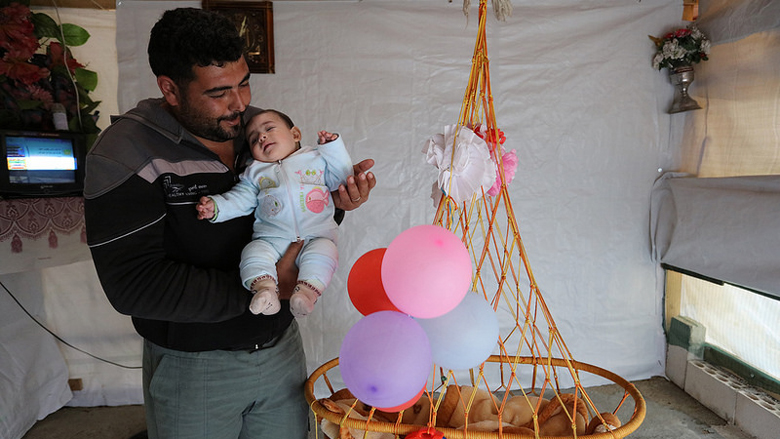The World Bank Group has developed a bold new strategy to tackle both the devastating consequences of conflicts in the Middle East and North Africa (MENA) and their underlying causes. Rather than waiting for the fighting to stop, the aim of this approach is to complement the massive humanitarian effort by strengthening the resilience of people and communities to cope with the shocks of conflicts and unrest, and to lay the foundations for peace and stability. This will require building broad coalitions, as the goals of the new strategy and the resources needed to achieve them far outstrip the capacity of any single organization.
The World Bank Group has therefore partnered with the United Nations and the Islamic Development Bank Group to build the global coalition required to support the MENA region at this critical moment. Together they have developed the New Financing Initiative to Support the MENA Region, an innovative initiative that aims to convene the international community to provide the urgent development support needed for countries across the MENA region impacted by the Syrian refugee crisis, conflict, and economic instability.
Specifically, the New Financing Initiative to Support the MENA Region aims to:
- Provide Jordan and Lebanon with concessional financing to support refugees and host communities by combining grants from donor countries with loans from Multilateral Development Banks (MDBs); and
- Raise the large volumes of financing needed for post-conflict reconstruction and economic recovery for countries across the MENA region by leveraging guarantees from donor countries, thereby providing additional financing on top of the current lending portfolios of MDBs.
As a sign of their joint commitment to the region, World Bank Group President Jim Yong Kim, United Nations Secretary-General Ban Ki-Moon and President of the Islamic Development Bank Group Dr. Mohammed Ali Al-Madani are travelling together to Lebanon. World Bank Group President Kim and UN Secretary-General Ban will also travel together to Jordan and Tunisia. The visit will provide the three leaders an opportunity to meet with government officials, refugees and host communities, as well as youth, representatives of civil society and the private sector. It will be an opportunity to hear a diverse set of perspectives on the challenges the region faces, while communicating the resolve of the international community to take the bold steps needed to help meet those challenges and build a brighter future.
Importantly, the visit is intended to rally support for the New Financing Initiative to Support the MENA Region as a vehicle for convening the international community to raise the resources needed to support the region at this critical juncture. The initiative ultimately represents a unique platform that brings together donor countries, benefitting countries in the MENA region, MDBs, and the United Nations to strengthen coordination between humanitarian and development assistance, and to provide a holistic response to the extraordinary challenges faced by the region.
One of the most paramount manifestations of the challenges faced in the region is the Syrian refugee crisis, which has had an enormous impact across the Middle East and North Africa, as well as globally. Although millions of Syrian refugees have left for Europe, the Syrian refugee crisis is felt most acutely by the countries bordering Syria. Lebanon and Jordan alone host 2–3 million Syrian refugees: both middle-income countries, they do not have access to the concessional financing reserved for the poorest countries. Yet, the refugee crisis is estimated to be costing Jordan U$2.7 billion a year and Lebanon US$1.6 billion. Their debt levels have shot up too: Jordan’s debt to GDP ratio is now 91%, and Lebanon’s 138%.
At the recent Supporting Syria and the Region conference in London, President Kim noted the international community’s collective responsibility to support Jordan and Lebanon: “These two nations have done the world a huge service in their generous help to Syrians, despite causing great sacrifice for their people and their economies.”
At the conference, President Kim announced the goal of raising US$1 billion worth of grants over five years from donor countries, which would be leveraged to generate US$3 to 4 billion in concessional financing. This financing will support a variety of projects, but most notably it will be directed toward the communities on the frontline of the refugee crisis in Jordan and Lebanon. To this end, the New Financing Initiative to Support the MENA Region will seek to support the transformational and innovative projects that can expand public services to both refugees and hosting communities alike, crowd-in the private sector, create jobs, and ultimately provide the critical medium- and long-term support needed to boost the resilience of Jordan and Lebanon.
For countries such as Tunisia, impacted by slow growth, the initiative aims to provide additional financing to support critical economic recovery programs. Jumpstarting growth and creating opportunities for the large number of unemployed youth will be crucial for stability in Tunisia and other countries across the region. The initiative also intends to raise the necessary funds for post-conflict reconstruction in order to help countries across the region recover from the devastation of conflict, and foster long-term peace and stability.
Next month, the President of the World Bank Group, the United Nations Secretary-General and the President of the Islamic Development Bank will convene ministers from the G7, Gulf Cooperation Council and broader European countries, as well as the heads of various international and regional organizations, at the World Bank Group headquarters for the International Conference for the New Financing Initiative to Support the MENA Region. This will be an opportunity for countries to pledge the initial financial support to launch the initiative and take the concerted and decisive action needed to restore hope for millions of people across the MENA region.

